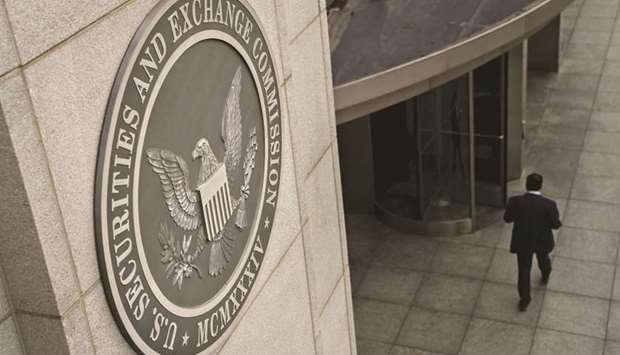Wall Street’s top watchdog won concessions in a debate between US regulators over how to police stablecoins, clearing a path for the Securities and Exchange Commission to crack down on the $131bn market.
The Treasury Department and other agencies will specify in a highly-anticipated report – expected to be published this week – that the SEC has significant authority over tokens like Tether, said people familiar with the matter. The report will also urge Congress to pass legislation specifying coins should be regulated similarly to bank deposits, one of the people said, asking not to be named because discussions are private.
Language was added to emphasise the SEC’s powers after its chair, Gary Gensler, pushed for changes behind closed doors, the people said.
The recommendations could reinforce the SEC’s ability to pursue enforcement actions and policies for cryptocurrencies.
The revisions he sought make clear that the government will take an active role in regulating stablecoins even as it waits for longer-term plans to be implemented. For industry executives, Gensler’s successful lobbying is likely to come as bad news because they already argue his agency has been overreaching.
Early versions of the report called for lawmakers to pass legislation that would, among other things, create a new type of bank charter for companies that issue stablecoins. In recent weeks, Gensler pushed to clarify the SEC has existing powers to oversee tokens when they’re involved in investment transactions, the people said. Any bill faces long odds in a divided Congress and could take years to enact.
The report will also reaffirm that the Commodity Futures Trading Commission has a role in overseeing stablecoins.
Spokespeople for the SEC, CFTC and Treasury declined to comment on the report.
Financial regulators are increasingly concerned about the risks tokens pose to the financial system following the sector’s rapid growth. Tether’s market value has grown to nearly $70bn from $21bn at the end of 2020, according to CoinMarketCap.com. USD Coin, the second-largest such coin, increased to $32.6bn from $3.9bn last year. Stablecoins play a crucial role in the crypto market.
Their value is tied to other assets, like the US dollar, and companies typically commit to keeping reserves that ensure investors can exchange the tokens for regular currency.
Authorities are already cracking down. In February, Tether settled with the New York Attorney General over allegations that it lied about the reserves backing the coin. The Commodity Futures Trading Commission earlier this month ordered Tether to pay $41mn over similar claims.
The pending report is being prepared by the President’s Working Group on Financial Markets with a goal of ensuring coins don’t threaten the economy and wants to clarify how the Biden administration will regulate the sector across several agencies likely to have a role. The group is also likely to propose that the Financial Stability Oversight Council, another council of regulators, formally assess whether tokens pose a systemic risk.
“You aren’t helping the system at all if what is called a stablecoin is actually not stable, so you don’t want to allow that kind of risk to build,” said Treasury Undersecretary for Domestic Finance Nellie Liang at a financial-technology conference hosted by Georgetown University Law Center last week.
Gensler has previously said that many stablecoins, which sometimes invest in corporate bonds and other assets, look similar to money-market mutual funds and could fall under his authority. The SEC is investigating some tokens, including one started by Coinbase Global Inc. and Circle Internet Financial Inc.
Stablecoin executives, including at Circle and Paxos Trust Co, have said they support bank-like regulation.
In contrast, some investor advocates have lobbied officials to emphasise regulators’ powers rather than to recommend Congress take action, given how long that process can take. The Americans for Financial Reform Education Fund sent a letter on October 19 to Treasury Secretary Janet Yellen expressing “alarm” that the report could suggest the legislative path.

The US Securities and Exchange Commission headquarters in Washington, DC. Wall Street’s top watchdog won concessions in a debate between US regulators over how to police stablecoins, clearing a path for the SEC to crack down on the $131bn market.
